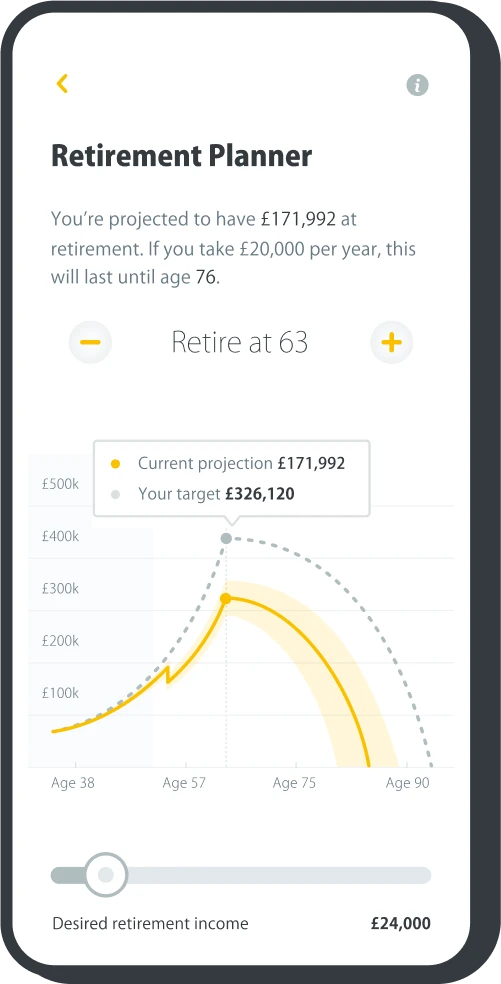Featured articles
What is the stock market?
The stock market is where investors buy and sell shares of public companies. These company shares are also known as stocks or equities. It’s a key part of the financial system that helps businesses bring in investment and gives individuals and institutions a way to build their wealth over time. But like all investments, the stock market carries risk. Prices can rise and fall, and you may get back less than you invest.
How does the stock market work?
At its heart, the stock market is a marketplace. But instead of fruit or furniture, the goods being traded are company shares. These are small ownership stakes in businesses.
Companies that want to raise money list their shares on a stock exchange, like the London Stock Exchange or New York Stock Exchange. They do this through a process called an Initial Public Offering (IPO). Once listed, their shares can be bought and sold by investors.
You don’t always have to buy a full share if you don’t want to. These days, many platforms and apps allow you to invest in fractions of shares or through funds, which pool your money with other investors to spread the risk.
Behind the scenes, a network of banks, brokers and fund managers keeps the system running. They match buyers with sellers, helping keep markets fair and transparent.
What moves stock market prices?
Stock market prices are constantly changing. They can go up and down on a daily basis depending on lots of different factors. Some of the main ones include:
- Company performance – strong profits, new products or positive news, such as a major new partnership or industry award, can all push share prices up. The opposite is also true.
- Investor confidence – if people are optimistic about the economy, they might be more willing to invest. If there’s uncertainty, such as market volatility, they may be more hesitant to invest their money.
- Interest rates – when interest rates rise, saving becomes more attractive than investing. This can lead to falling share prices.
- Global events – things like wars, elections, pandemics or energy crises can all affect market confidence and prices.
Put simply, stock market prices move because of supply and demand. If more people want to buy than sell, prices usually rise. When more want to sell, prices usually fall.
What’s a stock market index?
A stock market index is a way of tracking how a group of shares is performing. It gives you a snapshot of a specific area of the market or the market as a whole.
For example:
- The FTSE 100 tracks the 100 largest companies listed on the London Stock Exchange; and
- The S&P 500 tracks the 500 largest publicly traded companies in the United States.
When people say the market is up or down, they’re often talking about how well one of these indices is doing. Stock indices make it easier to spot overall trends, even when individual company shares are moving in different directions.
Stock market vs. stock exchange
People sometimes use ‘stock market’ and ‘stock exchange’ to mean the same thing, but there’s an important difference:
- a stock market is the general marketplace where company shares are bought and sold; and
- a stock exchange is a specific platform or place, like the London Stock Exchange, where the trading happens.
You can think of the stock market as the high street, and a stock exchange as a shop where the buying and selling takes place.
Be pension confident.
Combine your old pension pots into one new online plan. It takes just a few minutes to sign up.
Get startedHow stock markets help the economy
Stock markets don’t just help investors. They also play a big role in how modern economies work. Here’s how:
- They help businesses grow – selling shares means companies can pay for jobs, buy equipment and invest in new ideas.
- They can create wealth – over time, shares may increase in value, helping people save for things like retirement.
- They provide transparency – public companies are legally required to keep investors and the general public informed with regular updates, which helps build trust and stability.
- They support pensions – many pension funds invest in stock markets around the world. When markets grow over the long term, so can people’s retirement savings.
While prices naturally rise and fall, stock markets have historically delivered long-term growth. This supports everything from public services to private pensions.
It’s important to remember that past performance isn’t an indicator of future performance.
Can you invest in the stock market through a pension?
Most pensions invest in the stock market. For example, when you pay into a defined contribution pension, your money is usually invested in a range of assets. These often include company shares, with the aim of growing your pot over time.
Because pensions are long-term investments, they’re well suited to riding out the regular ups and downs of the market.
The idea is that your savings grow steadily over the decades, helped by three key factors:
- Compound growth – any returns you earn on your pension are reinvested, so over time you can earn returns on your returns. This is known as compound interest.
- Tax relief – for every eligible contribution you make, the government adds a little extra, boosting your pot. Usually basic rate taxpayers get a 25% tax top up; meaning HMRC adds £25 for every £100 you pay into your pension making it £125.
- Employer contributions – if you have a workplace pension, your employer usually pays in too, helping your savings grow faster. Under Auto-Enrolment rules, the minimum amount employers have to pay for eligible employees is 3% of their ‘qualifying earnings’.
If you’re invested in a PensionBee pension plan, you don’t need to worry about choosing shares yourself. Your money is invested in a mix of financial assets and managed by experts at BlackRock or State Street Global Advisors.
Why the stock market is important for your pension
The stock market can seem complicated. But really, it’s about helping businesses grow and, at the same time, giving people a way to build their wealth.
When your pension is invested in the stock market, it’s usually part of a well-diversified portfolio. That means your money is spread across a mix of different companies, sectors and countries to help manage risk.
Find out more about how your pension is invested.
Risk warning
As always with investments, your capital is at risk. The value of your investment can go down as well as up, and you may get back less than you invest. This information should not be regarded as financial advice.
Last edited: 18-06-2025







